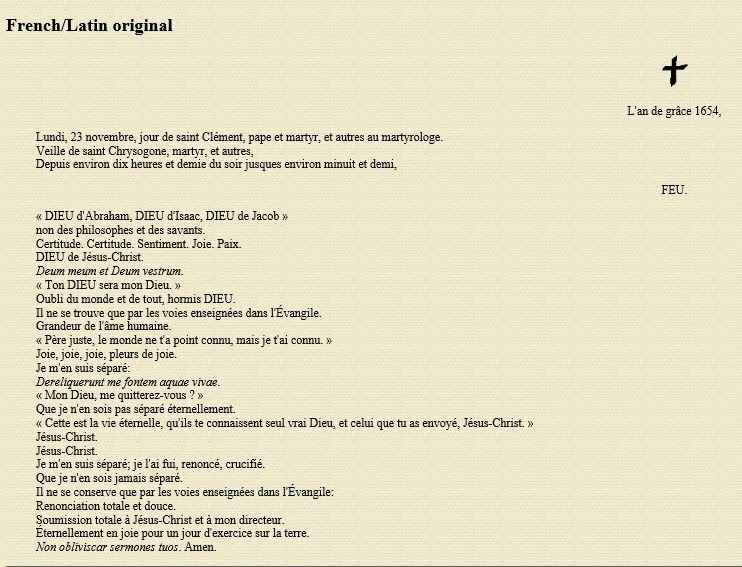Posts
Showing posts from April, 2015
Definition of History
- Get link
- X
- Other Apps
Haven't read much of Scholem's text on Benjamin yet, but this is perhaps the most interesting bit thus far: Benjamin conceded that no laws could be observed in history, but he insisted on upholding his definition of history as "the objective element in time, something perceptibly objective." In this he found the possibility of demonstrating such an objective factor scientifically. He admitted that he had not yet succeeded in doing so; for my part, I undertook to demonstrate the impossibility of such an enterprise. At length each of us said, Well, when you have come to the end you will admit I am right.
Bob Lemon (1920 - 2000)
- Get link
- X
- Other Apps
Robert Granville "Bob" Lemon (September 22, 1920 – January 11, 2000) was an American right-handed pitcher and manager in Major League Baseball (MLB). Lemon was elected to the National Baseball Hall of Fame as a player in 1976. Lemon was raised in California where he played high school baseball and was the state player of the year in 1938. At the age of 17, Lemon began his professional baseball career in the Cleveland Indians organization, with whom he played for his entire professional career. Lemon was called up to Cleveland's major league team as a utility player in 1941. He then joined the United States Navy during World War II and returned to the Indians in 1946 . That season was the first Lemon would play at the pitcher position. The Indians played in the 1948 World Series and were helped by Lemon's two pitching wins as they won the club's first championship since 1920 . In the early 1950s, Cleveland had a starting pitching rotation which inc...
The Marshmallow Test
- Get link
- X
- Other Apps
The Stanford marshmallow experiment [ 1 ] was a series of studies on delayed gratification in the late 1960s and early 1970s led by psychologist Walter Mischel , then a professor at Stanford University . In these studies, a child was offered a choice between one small reward provided immediately or two small rewards if they waited for a short period, approximately 15 minutes, during which the tester left the room and then returned. (The reward was sometimes a marshmallow , but often a cookie or a pretzel .) In follow-up studies, the researchers found that children who were able to wait longer for the preferred rewards tended to have better life outcomes, as measured by SAT scores , [ 2 ] educational attainment, [ 3 ] body mass index (BMI), [ 4 ] and other life measures.
Pascal's Wager
- Get link
- X
- Other Apps
Pascal's Wager is an argument in apologetic philosophy devised by the seventeenth-century French philosopher , mathematician and physicist Blaise Pascal (1623–62). [ 1 ] It posits that humans all bet with their lives either that God exists or not. Given the possibility that God actually does exist and assuming an infinite gain or loss associated with belief or unbelief in said God (as represented by an eternity in heaven or hell ), a rational person should live as though God exists and seek to believe in God. If God does not actually exist, such a person will have only a finite loss (some pleasures, luxury, etc.). [ 2 ] Pascal formulated the wager within a Christian framework. The wager was set out in section 233 of Pascal's posthumously published Pensées ("Thoughts"). These previously unpublished notes were assembled to form an incomplete treatise on Christian apologetics . Historically, Pascal's Wager was groundbreaking because it charted new te...
Cioran Withdrawal: Bits and Pieces
- Get link
- X
- Other Apps
A few final excerpts from the last few essays (all centered on Cioran's thoughts, observations re various people). On an anonymous woman ( She Was Not of Their World . . .): Adieu was the sign and the law of her nature, the flash of her predestination, the mark of her passage on earth; hence she bore it like a nimbus, not by indiscretion, but by solidarity with the invisible. * On F. Scott Fitzgerald: Thus Fitzgerald's admirers deplore the fact that he brooded over his failure and, by dint of ruminating so deeply upon it, spoiled his literary career. We, on the contrary, deplore that he did not remain sufficiently loyal to that failure, that he did not sufficiently explore or exploit it. It is a second-order mind that cannot chose (sic) between literature and the "real dark night of the soul." * On Weininger (from a brief letter): In Weininger it was the dizzying exaggeration that fascinated me, the infinity of negation, the denial of common sense, the ...
Cioran Withdrawal: Rereading . . .
- Get link
- X
- Other Apps
I should've known: There had to be a connection between Cioran and Celan. The very last text of A/A is "Rereading . . ." The brief intro goes: "Translated into German by Paul Celan, my Precis de Decomposition ( A Short History of Decay ), was published by Rowolt in 1953. When it was republished in Germany in 1978, the editor of Akzente asked me to introduce it to the magazine's readers. That is the origin of this text."
Gershom Scholem (1897 - 1982)
- Get link
- X
- Other Apps
Gerhard Scholem who, after his immigration from Germany to Palestine, changed his name to Gershom Scholem ( Hebrew : גרשם שלום) (December 5, 1897 – February 21, 1982), was a German-born Israeli philosopher and historian. He is widely regarded as the founder of the modern, academic study of Kabbalah , becoming the first Professor of Jewish Mysticism at the Hebrew University of Jerusalem . [ 1 ] His close friends included Walter Benjamin and Leo Strauss , and selected letters from his correspondence with those philosophers have been published. Scholem is best known for his collection of lectures, Major Trends in Jewish Mysticism (1941) and for his biography Sabbatai Zevi, the Mystical Messiah (1973). His collected speeches and essays, published as On Kabbalah and its Symbolism (1965), helped to spread knowledge of Jewish mysticism among non-Jews. [From Wikipedia: http://en.wikipedia.org/wiki/Gershom_Scholem#Debate_with_Hannah_Arendt ]
"Walter Benjamin: The Story of a Friendship" By Gershom Scholem
- Get link
- X
- Other Apps
Going through a Cioran withdrawal, but I've pulled myself away to start something new. Still reading the intro but it promises to be a good read (another selection from NYRB), perhaps revealing the author (whom I know next to nothing about) as much as the object of his friendship: Benjamin. * An excerpt from the Introduction (taking a slice which also includes another big name: Hannah Arendt, who apparently also wrote an important essay on Benjamin): Arendt's denial of Benjamin's religious nature was not the only thing that must have incited Scholem. Her insistence on "bad luck" as the guiding force behind Benjamin's life must also have provoked him. Benjamin's idea of history as "one single catastrophe which keeps piling wreckage upon wreckage" becomes in Arendt's perspective Benjamin's projection of his own unluckiness, the "pile of debris" that fate kept throwing across his path. "Benjamin's suicide," she...
R L Swihart's Also at The Tipton Poetry Journal (Issue #27)
- Get link
- X
- Other Apps
Otto Weininger (1880 - 1903)
- Get link
- X
- Other Apps
Cioran linked him with Strindberg and the Book of Genesis. I hadn't heard the name before. * Otto Weininger ( German: [ˈvaɪnɪŋɐ] ; April 3, 1880 – October 4, 1903) was an Austrian philosopher . In 1903, he published the book Geschlecht und Charakter ( Sex and Character ), which gained popularity after his suicide at the age of 23. Today, Weininger is viewed as misogynistic and antisemitic by many in academic circles, [ 1 ] but was held to be a great genius by the philosopher Ludwig Wittgenstein and the writer August Strindberg . Life Otto Weininger was born on April 3, 1880 in Vienna as a son of the Jewish goldsmith Leopold Weininger and his wife Adelheid. After attending primary school and graduating from secondary school in July 1898, Weininger registered at the University of Vienna in October of the same year. He studied philosophy and psychology but took courses in natural sciences and medicine as well. Weininger learned Greek , Latin , French and Engli...
Not the Thorn Birds but the Phone Birds
- Get link
- X
- Other Apps

I'll call him a blue bird because he's blue (have seen him a lot this spring), but will update if I run down another name. A blue bird by any other name would tweet as sweet. He was atop the phone booth, then the wife joined him, then he's alone again, and I guess the yellow string was some sort of pull-cord or escape rope for the nest. *
Hierophany
- Get link
- X
- Other Apps
The term " hierophany " (from the Greek roots "ἱερός" (hieros), meaning "sacred" or "holy," and "φαίνειν" (phainein) meaning "to reveal" or "to bring to light") signifies a manifestation of the sacred . In Mircea Eliade's writings: The term "hierophany" appears frequently in the works of the religious historian Mircea Eliade as an alternative to the more restrictive term " theophany " (an appearance of a god). [1] Eliade argues that religion is based on a sharp distinction between the sacred (God, gods, mythical ancestors, etc.) and the profane. [2] According to Eliade, for traditional man, myths describe "breakthroughs of the sacred (or the 'supernatural') into the World" – that is, hierophanies. [3] In the hierophanies recorded in myth, the sacred appears in the form of ideal models (the actions and commandments of gods, heroes, etc.). By manifesting itself as ...
The Iron Guard
- Get link
- X
- Other Apps
The Iron Guard ( Romanian : Garda de fier pronounced [ˈɡarda de ˈfjer] ( listen ) ) is the name most commonly given to a far-right movement and political party in Romania in the period from 1927 into the early part of World War II . The Iron Guard was ultra-nationalist , anti-communist , anti-capitalist and promoted the Orthodox Christian faith. It is also considered an antisemitic organization. When Ion Antonescu came to power in September 1940 he brought the Iron Guard into the government. Under the dictatorial rule of Horia Sima , the Guard launched a murderous attack on Jews. In January 1941, however, Antonescu used the army to suppress a revolt of the Iron Guard . He destroyed the organization, as its commander Horia Sima and some other leaders escaped to Germany. Background Romanian antisemitism had deep roots and was generally accepted, as it was a religious conception in which Christians and Jews were very different and should live independent to eac...
Cioran: More Aphorisms
- Get link
- X
- Other Apps
One would have to be as unenlightened as an angel or an idiot to imagine that the human escapade could turn out well. * "My children, salt comes from water, and if it comes in contact with water, it dissolves and vanishes. In the same way, the monk is born of woman, and if he approaches a woman, he dissolves and ceases to be a monk." This Jean Moschus, in the seventh century, seems to have understood better than either Strindberg or Weininger the danger already pointed out in Genesis. * Every life is the story of a collapse. If biographies are so fascinating, it is because the heroes, and the cowards quite as much, strive to innovate in the art of debacle. * Each of us clings as best he can to his unlucky star.
From Cioran's Essay on Eliade
- Get link
- X
- Other Apps
Excerpts: I first met Eliade around 1932, in Bucharest, where I had just finished some sort of studies in philosophy. He was at that time the idol of the "new generation," a magic formula we were proud to invoke. * I have never been able to read Balzac; to tell the truth, I stopped trying on threshold of adolescence. His world is closed to me, inaccessible; I never manage to enter it; I am refractory to it. How many times has Eliade tried to convert me! He first read the Comedie humaine in Bucharest; he reread it in Paris in 1947; perhaps he is rereading it in Chicago now. * Since Pascal and Kierkegaard, we can no longer conceive of "salvation" without a procession of infirmities, and without the secret pleasures of the interior drama. * We are all, Eliade first of all, ci-devant believers; we are all religious spirits without religion.
Mircea Eliade (1907 - 1986)
- Get link
- X
- Other Apps
Mircea Eliade ( Romanian: [eliˈade] ; March 9 [ O.S. February 24] 1907 – April 22, 1986) was a Romanian historian of religion, fiction writer, philosopher, and professor at the University of Chicago . He was a leading interpreter of religious experience, who established paradigms in religious studies that persist to this day. His theory that hierophanies form the basis of religion, splitting the human experience of reality into sacred and profane space and time, has proved influential. [1] One of his most influential contributions to religious studies was his theory of Eternal Return , which holds that myths and rituals do not simply commemorate hierophanies, but, at least to the minds of the religious, actually participate in them. [1] His literary works belong to the fantastic and autobiographical genres. The best known are the novels Maitreyi ("La Nuit Bengali " or "Bengal Nights"), Noaptea de Sânziene ("The Forbidden Forest"), Isabel și a...
Cioran: More Aphorisms
- Get link
- X
- Other Apps
In the deserted church, the organist was practicing. No one else there, except a cat that wreathed itself around me. . . . Its eagerness was a shock: the inveterate tormenting questions assailed me. The organ's answer did not seem satisfying to me, but in my condition, it was an answer nonetheless. * Under an incomparably desolate sky, two birds, indifferent to that lugubrious background, pursue one another. . . . Their obvious delight is more apt to rehabilitate an old instinct than the entire body of erotic literature. * Music is an illusion that makes up for all the others. (If illusion is a term doomed to disappear I wonder what will become of me.)
Cioran on Beckett
- Get link
- X
- Other Apps
Can you imagine running into Beckett from time to time in the Luxembourg Garden? I cannot. * The endgame of Cioran's essay on Beckett: I find him as obstinate as any fanatic. Even if the world crumbled, he would not abandon the work under way, nor would he alter his subject. In the essential things, he is certainly not to be influenced. As for the rest, the inessential, he is defenseless, probably as weak as all of us, even weaker than his characters. . . . Before collecting these notes, I had intended to reread what Meister Eckhart and Nietzsche wrote, from their different perspectives, about "the noble man." I have not carried out my project, but I have not forgotten for a single moment that I had conceived it.
Cioran's "Anathemas and Admirations"
- Get link
- X
- Other Apps
Still restless in my literary wanderings, though still interested in Cioran. Ergo: mixing in Anathemas and Admirations (late Cioran) with Decay . * From the forward to A/A (by Eugene Thacker of "dusty planet" fame) comes an interesting biographical fragment (fitting?) re Cioran's final days: In the 1990s, an emaciated, elderly man with sharp eyes and wavy hair is found sitting on the side of the street somewhere in Paris's Latin Quarter. He is lost. He can recall neither the way back home nor even his address. He is taken home. Eventually he stops eating. After an accidental fall, he is brought to a hospital. He drifts in and out of lucidity, rarely recognizing those closest to him. He stops speaking entirely. After slipping into a coma, Emil Cioran dies, on June 20, 1995. * Also from A/A , in an essay (Admiration) on Joseph de Maistre (1753 - 1821), a snippet re the Fall: . . . Like all great ideas, that of the Fall accounts for everything and for noth...
Early Cioran: "A Short History of Decay"
- Get link
- X
- Other Apps
If primarily seen as Cioran's response to WWII, the unrelenting darkness of A Short History of Decay (love the title) might be more understandable, but for me it's more than that. The older Cioran seems to have chipped away at the younger Cioran's lyricism for lyricism's sake and moved toward a less baroque and word-glutted text. I could be wrong -- I've only read two Ciorans: Drawn and Short History -- but thus far that's my feeling. Short History is a slower read for me, but not without some humorous and thought-provoking passages. * Excerpt from A Short History of Decay (from a short section titled "Turning a Cold Shoulder to Time"): Yesterday, today, tomorrow -- these are servants' categories. For the idle man, sumptuously settled in the Inconsolable, and whom every moment torments, past, present, and future are merely variable appearances of one and the same disease, identical in its substance, inexorable in its insinuati...


















